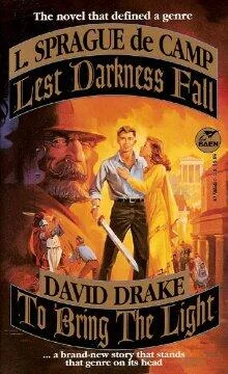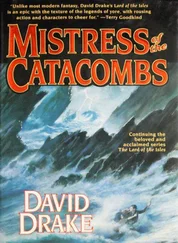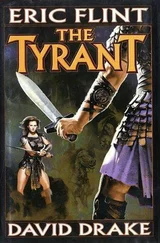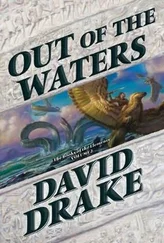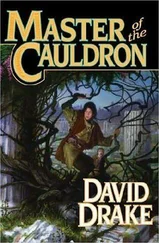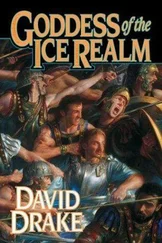“Dad!” Herosilla’s taller companion called. “We’ve a lady here brought by a lightning bolt!”
“She’s a messenger sent to me by Mars!” his brother said. He raised his voice even louder, perhaps hoping volume could compel belief.
Heads turned as soon as the brothers spoke. When the folk outside saw Herosilla in her silks and jewelry, their excited babble drew others from the huts.
“I’m a gentlewoman of Cumae, visiting Rome for the celebrations,” Herosilla said crisply. “My arrival here is a purely natural phenomenon, nothing to do with gods. I want you to take me to your master immediately. I’ll see to it that you’re all well rewarded.”
The rain had stopped. A full moon began to edge into the gap between clouds. She’d been sure—she’d thought —the moon had been in its last quarter the night before…
The brothers and Herosilla stopped in front of a hut no different from the others. The opening cut in one sidewall for a window was shuttered. There was no hole in the roof peak. Smoke from the fire within seeped through the thatch and lay like a cloud over the brush roof weights.
An old man hobbled from the hut, leaning on a staff and the arm of a woman who was possibly somewhat younger. The other villagers stood close but didn’t crowd Herosilla and her guides. The brothers’ ’dad’ was the supervisor or at least first among equals in the community.
“Oh, she’s Greek!” the woman with ‘dad’ said. Switching to that language she went on, “Lady, I am Acca and this is my husband Faustulus. We make you welcome.”
To Herosilla’s further amazement, Acca spoke with an Ionic accent rather than the simplified common dialect. Homer might have sneered at Acca’s diction, but he wouldn’t have had any difficulty understanding what she was saying.
“Ah!” said Faustulus in the same archaic Latin that his sons used. “We’ve had traders come through here from time out of mind, mistress, but never a Greek lady before.”
“I—” Herosilla began. She’d planned to explain that she wasn’t Greek. She realized the effort would be pointless. All Herosilla cared about was returning to civilization: her books, her circle of learned friends; her home and the wink of waves on the Bay of Naples. If these yokels wanted to think she was Greek, so be it.
She spoke the language, of course. Half of Rome’s population, Emperor Philip included, came from the east of the empire and spoke more Greek than Latin. Any educated person had studied the Iliad and Odyssey , so Acca’s dialect provided no difficulties.
Why on earth would the villagers equate traders with Greeks, though? Had the lightning cast her all the way down the toe of Italy to where families traced their ancestry to Greek settlements centuries older than Rome’s expansion into the region?
“I really need to see your master,” Herosilla said. Cold, exhaustion and the shock of whatever had happened struck her suddenly humble. “But may I buy some dry clothing? I’ll pay whatever you ask.”
“We’ll have to hold a council on this,” somebody rumbled from the crowd.
“Yes, yes, you hold your council,” Acca snapped, “but I’ll take this lady inside for something warm to put on and put in her besides. You’d like a bite of food, wouldn’t you, dearie?”
“Yes,” Herosilla said. She almost staggered at the thought of food. She hadn’t realized how hungry she was until Acca spoke. “Yes, I really would. I’ll pay you—”
“Tush! Why speak of pay when there’s been no honor so great to the village in the time folk have pastured their flocks here?” Acca said, drawing Herosilla after her into hut. The interior was dark and smoky, but the warmth was wonderfully comforting.
“You’re not a goddess, you say, lady,” Acca said. “But do you speak for the gods like the Sibyl of Samos does?”
“No, I’m a scholar,” Herosilla said. She thought about the question and asked, “Why do you say, ‘the Sibyl of Samos’, woman? If you’re going to mention one of the ten sibyls, why didn’t you say, ‘the Sibyl of Cumae’? Cumae is much nearer.”
“Oh, is there a sibyl in Cumae now?” Acca said in surprise. “There didn’t used to be.”
Acca stoked the fire with a stick of brushwood. By the light of fresh flames she rooted in one of several wicker hampers. The only other furnishings were the low bed and a loom on which she was weaving a strip of wool banded by selecting naturally colored yam.
“My best,” Acca said with pride as she brought out a tunic. “I wear it to town on market days.”
Herosilla couldn’t see how the coarsely-woven garment differed from the one her hostess wore now, but it looked warm and dry which was all the recommendation required at the moment. Herosilla spread her arms, then realized that she didn’t have a maid to dress her. “Oh,” she said in embarrassment. “I…” Acca nodded knowingly. “First we’ll feed you,” she said, switching back to careful Greek. “Then I’ll help you change. You’ve come from Chalcis, I shouldn’t wonder?”
She set the tunic on the hamper and took a shallow wooden bowl from a shelf. Tools and bundled vegetables hung from the roof beams. The shelves held utensils and more wooden dishes, but the only pottery was the earthenware pot on the fire and a small jug with a tawny glaze and a simple geometric design. Absurd as it seemed to Herosilla, the jug seemed to be kept as a showpiece rather than for use.
“I’m, ah…” Herosilla said. “I live in Cumae, actually.”
Cumae had been settled by colonists from Chalcis in Greece; by legend, shortly after the Trojan War, but certainly in the distant past. Why would anybody think a Greek lady came from a backwater like Chalcis now, though?
“You’re so lovely that I thought you were from Chalcis,” Acca said as she dipped a horn spoon into the pot. She filled the bowl with steaming porridge and handed it to her guest. “There’s many fine ladies there, I’m sure.”
Herosilla paused for a moment, then realized she was meant to slurp the meal with the aid of her fingers. She was too hungry to protest.
Outside, male voices rose in the rhythmic patterns of oratory. Apparently one facet of civilized society held true here: not even sex intrigued males as much as the sound of their own voices.
“I lived in Cumae for a time,” Acca said in a wistful tone. “That was long ago when I was young, though.” She stepped behind her guest and carefully untangled the saffron-colored shawl as Herosilla ate. “Oh, what wonderful cloth! Could you teach me to weave like this, lady?”
Herosilla blinked. She wasn’t sure how to answer without insulting a woman whom both decency and self-preservation demanded she treat well. “I couldn’t weave these myself,” she said. “Someone else made them. This is delicious porridge, Acca.”
The porridge was remarkably tasty. It seemed to contain primarily millet and cheese, with no spices but a chopped onion and the natural pungency of ewe’s milk. Herosilla would have turned up her nose at the dish at a dinner party, but hunger made her willing to find excellence in simple things.
“Such lovely clothing,” Acca said, relapsing into Latin as she fondled the silk, “We can’t hang it to dry until the morning.”
“That will be fine,” Herosilla said. Grimacing, she urged more of the thick porridge toward her mouth with her fingertips. She thought of asking for bread, but she hadn’t seen any sign of an oven outside the house. “Can you get my necklace off?”
“Oh, may I?” Acca said, touching the catch. “Such lovely things.”
Herosilla let the hut’s warmth penetrate her muscles as Acca removed her clothing and ornaments. If Herosilla closed her eyes, she could imagine that she was in her study with a charcoal brazier beside her, preparing to write an account of her translation from Rome to this village. Lightning, an aspect of the element of fire, had rent the air—a denser element—as air itself bubbles violently through water…
Читать дальше
